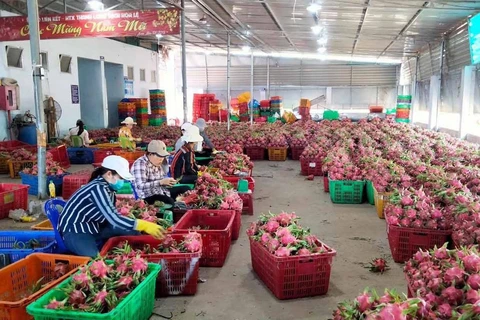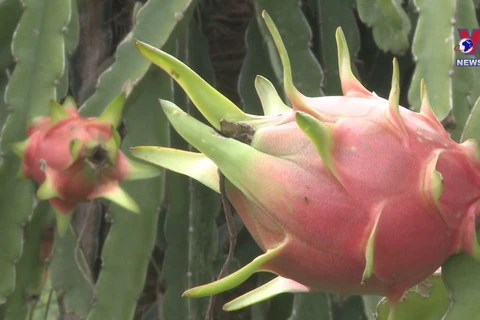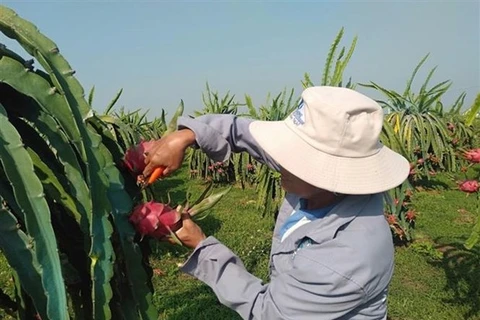 Some of the participants at the virtual workshop where the Code of Conduct was announced on October 27. (Photo courtesy of VIRI)
Some of the participants at the virtual workshop where the Code of Conduct was announced on October 27. (Photo courtesy of VIRI) The CoC aims to help local businesses meet the requirements of the two free trade agreements to which Vietnam is a member - the European Union–Vietnam Free Trade Agreement (EVFTA) and the Comprehensive and Progressive Agreement for Trans-Pacific Partnership (CPTPP).
The event was organised by the Vietnam Institute for Rural Industry Research and Development (VIRI) in collaboration with Vietnam Fruit & Vegetables Association (VINAFRUIT) and Vietnam Coffee - Cocoa Association (VICOFA).
The CoC is an independent and voluntary set of standards that aim to establish appropriate standards in micro-, small and medium-sized enterprises, cooperatives, and farmer households.
In the coffee sector, the CoC includes three compliance levels, essential required and recommended, across seven areas. These are; the conservation of arable land; water conservation and use of water; conservation of biodiversity; energy usage; use of pesticides; waste management; ozone layer protection; and increasing resilience to climate change.
In the fruit and vegetable sector, the areas of focus are; water conservation and water use; energy consumption; use of pesticides, waste management; landscape conservation and crop protection; and ozone layer protection and increasing resilience to climate change.
Compliance with the CoC helps micro-, small, and medium-sized enterprises improve product and brand value, ensuring sustainable utilisation of resources for cultivation, production, and processing, and opening the door to international certifications.
The launching workshop is part of the project: "Advancing environmentally responsible business for the coffee, fruit and vegetable sectors in Vietnam". Funding and technical support are provided by the United Nations Development Programme (UNDP) and the Government of Sweden.
During the workshop, 41 enterprises from the two sectors signed a pledge to show their commitment to support and implement the “Codes of conduct on environmentally responsible business for the coffee sector and fruit & vegetable sector in Vietnam”.
This shows businesses’ advocate and support the CoC's as they move towards a more sustainable environment for future generations.
UNDP Deputy Resident Representative in Vietnam Patrick Haverman applauded Vietnamese businesses for their timely action to protect the environment and human rights. “The right to living in a safe, clean, healthy and sustainable environment is the latest fundamental human right recognised by the UN Human Rights Council,” he said.
“Businesses’ commitment to put the Codes of Conduct into practice and strict compliance will contribute to effective protection of this newly recognised human right. UNDP is proud to support businesses in this effort together with our partners, thus embracing a bright future and sustainable living environment for next generations.”
Ola Karlman, Head of Promotion, Economic and Political Affairs at the Embassy of Sweden, pointed to the Swedish experiences of focusing on sustainability, human rights and social dialogue as means to make business thrive. “Climate change can no longer be ignored and companies that succeed in adapting to the increasing demand for sustainable products will see their revenues go up,” he said. “Respecting Human Rights and implementing responsible business practices is therefore not only right – it is also smart.”
The CoCs have received great support from businesses in Vietnam as well as experts and international certification organisations. They have been endorsed by LEAF Marque, a global system that adopts a whole-farm approach, certifying the entire farm business and products. LEAF Marque has 30 years of experience in developing and promoting regenerative agriculture. The development of the CoC is the first step in the process of building a certificate of environmentally responsible business across the two sectors. The next step is the development of a certification process that builds capacity for monitoring, evaluating, and labelling; developing specific testing, monitoring and guidance; and labelling regulations./.
VNA






















